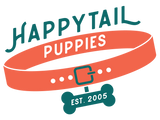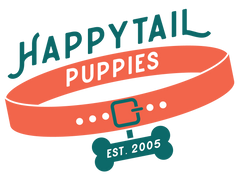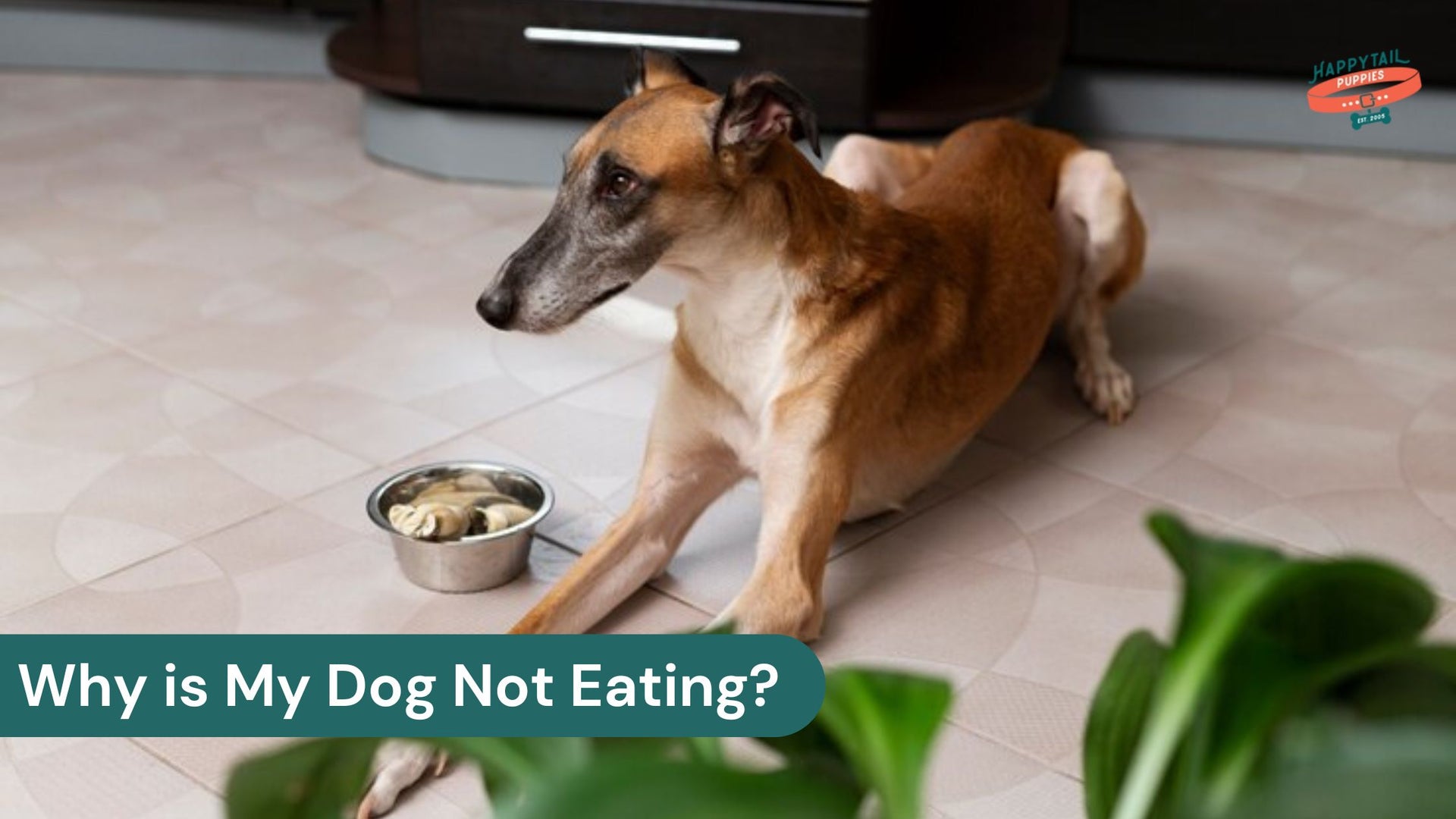Why Is My Dog Not Eating? Common Causes and Solutions for Appetite Loss
Whenever a dog refuses food, it proves distressing, especially for pet owners. A dog's appetite is generally a representation of its health, and therefore, a sudden decrease in food intake raises some serious concerns. So, why is my dog not eating? Although it is typical to worry whenever your furry companion refuses food, there are a series of reasons explaining this behavior. A few causes are often temporary and minor, although there are others in need of medical attention. Knowing about the possible reasons behind the loss of appetite would help you determine the right course of action to ensure the well-being of your dog, especially when you own small breeds like Yorkie Poo, Pomeranian, or Teacup Maltese.
Common Reasons Why Dogs Stop Eating
Numerous factors contribute to dogs' sudden loss of appetite, and here are a couple of reasons my dog won't eat.
Illness or Infection
An ill dog, is unlikely to be hungry to eat. Some of these diseases include diarrhea or vomiting, pneumonia, or other medical conditions, such as kidney disease, which may render your dog not eager to eat. For conditions such as loss of appetite, accompanied by other symptoms such as lack of energy, vomiting, or diarrhea, the owner has to seek medical consultation with the dog's doctor since they may be manifestations of other potential health complications.
Recent Vaccinations
Pets also need to be observed for side effects that may be related to vaccinations that may have been administered a few days before or could be a result of illnesses that affected the animals before they were captured. Although they are important tools in preventing severe illnesses, your dog may feel a little unwell after the shots for one or two days. This is normally a temporary response, and your dog’s appetite should return to normal within 48 hours.
Stress or Anxiety
Dogs not eating due to stress is a common issue among pet owners, and this may lead to disruptions in their feeding patterns. Environmental stress factors, including a change of house, the addition of a new family member or a pet, excessive noise, etc., put the dogs in discomfort, hence causing them to lose their appetite. If the dog is particularly anxious or stressed, dealing with these underlying factors may help to solve the lack of appetite problem.
Dental Issues
Sometimes a dog might have issues with his teeth or gums that would make it painful to eat. These include infections in the oral cavity, a damaged tooth, or an inflamed gum, which may prevent a dog from feeding. If you find such signs in your dog, it may be time to take your pet for a professional oral examination and treatment.
Behavioral Reasons for Appetite Loss
There are times when a dog is not eating and is too lazy to eat for more identical behavior instead of physical issues. Changes to their routine, environment, or food choices would eventually lead to them skipping their meals.
Changes in Environment
Dogs, especially when you own small breeds like Cavapoos or Maltipoos, are always used to routines, and thus, any alterations to their routine may impact the amount of food they consume. Your dog may be experiencing discomfort in the new environment if it recently relocated or if the living space was redecorated, so it is better to understand the difference between Cavapoo vs Maltipoo to understand their needs. Likewise, shifts in feeding time or place could also be a reason for this kind of activity. Consistency has to be restored in their feeding regime.
Picky Eating Habits
The other related issue is that dogs become choosier in what they eat due to the change in feeding habits and many owners feeding them scraps. If used to getting their meals in a certain way, they may turn down their rations of dog food they feel are less palatable.
Routine Disruption
A dog’s appetite can also decrease due to alterations in the daily diet schedule, changes in family activities, or even travel due to behavioral reasons for not eating. Dogs need a diet plan in terms of when they eat, exercise, and sleep.

Should You Be Worried? Signs It’s Time to Visit the Vet
When Your Dig is Lethargic
This is especially true if your dog is not only avoiding his food but also looks more tired or weak than usual. Some illnesses are characterized by fatigue in smaller breeds like Havapoo or Havanese, and hence, weakness is evident. So, it is important to understand the key difference between Havanese vs Havapoo before understanding their diet routine and address the issues they have with eating by visiting a vet.
Vomiting or Diarrhea
Dogs often face complications involving diarrhea and vomiting. These gastrointestinal issues can lead to dogs feeling unhealthy toward food. Situations where the dog is not eating and vomiting are found to be primary ones that lead to dehydration and are associated with other clinical issues. You should take your pet to the vet when the condition lasts for over 24 hours.
Weight Loss
The unexpected or unexplained loss of appetite accompanied by extreme weight loss must signal a host of medical conditions, ranging from metabolic disorders to organ diseases. If your dog continues to lose weight, it is important to consult a professional in this field.
Extended Period of Appetite Loss
Whenever your Dog has not eaten for three days, you should seek a veterinarian. While some dogs can go a day or two without eating without health complications, continuous starving poses severe health implications.
Solutions to Encourage Your Dog to Eat
But if your dog ceases eating, there are some things you can do to ensure that it resumes eating. So, how do I get my dog to eat?
Change the Food Brand or Flavor
Sometimes, a dog might get bored with what they are eating, and they stop eating. If you can offer them something else-brand or flavor-they might be tempted to resume eating. One might suggest giving them quality food, foods without grains or proteins, to entice your pets.
Create a Feeding Schedule
Some possible solutions for dogs not eating include establishing a daily feeding schedule so that your dog knows when it's time to eat, feeding it at the same times every day, and taking away the food after some time if he hasn't eaten it. This helps get rid of free-feeding habits, where food is always left lying around all day long, forcing him to eat at your expected times.
Consider Appetite Stimulants
If your dog has become ill, your veterinarian will prescribe some appetite-building medication. Such drugs may be prescribed to stimulate the appetite of your dog if its eating habits have reduced due to illness or even surgery.
Can Diet Changes Affect Your Dog’s Appetite?
Dogs may take time to accept new food even if it is changed regularly; that is, they may be forced to eat when they are bored. This way, they will be able to handle the new changes, and it will not shock their system into refusing to carry out any further changes.
Transitioning to New Food
When you want to aim for transitioning dog food, it is recommended that you wean this process over 7-10 days. You should first offer a small portion of the new food to your pets and mix it with their regular food. Then, gradually reduce the quantities of the regular food until your pets are fully on the new diet. Feeding them in this gradual manner reduces the risks of stomach upsets and convinces them to take the new food.
Conclusion
So, why is my dog not eating? It would be normal to worry when one sees their dog losing their appetite, but this might result from many factors, and they could not be serious, like stress. Your dog might be extremely picky about his food and might often feel irritated with just a look. If the issue persists for over 24 hours, then it might call in for attention from a vet. The vet will check out your dog’s food intake and behavior to analyze the entire condition of the health of your furry companion.
Frequently Asked Questions
Why Is My Dog Not Eating but Acting Normal?
This is a real deal, as you need to monitor your dog's actions. The real issue might be the dog's behavior, stress over some things, or being too particular with food.
Can Dogs Go Without Food for a Day?
Of course, such body conditions indicate that healthy dogs can often go without food for a whole day. However, you may have situations in which your dog refuses to eat for a long time; a vet should handle this.
Can I Switch My Dog’s Food Suddenly?
Making a sudden change to your dog's food can lead to gastrointestinal issues like vomiting, reduced appetite, and diarrhea. You should give your dog a new diet to give its system some time to adjust to this change.
What Can I Do If My Dog Is a Picky Eater?
Give your dog a lot of praise to help them eat their food from their bowl. Limit access to the snacks that include human food from the plate. Restrict their treats to the training tools only and also try to make their food more appealing.


